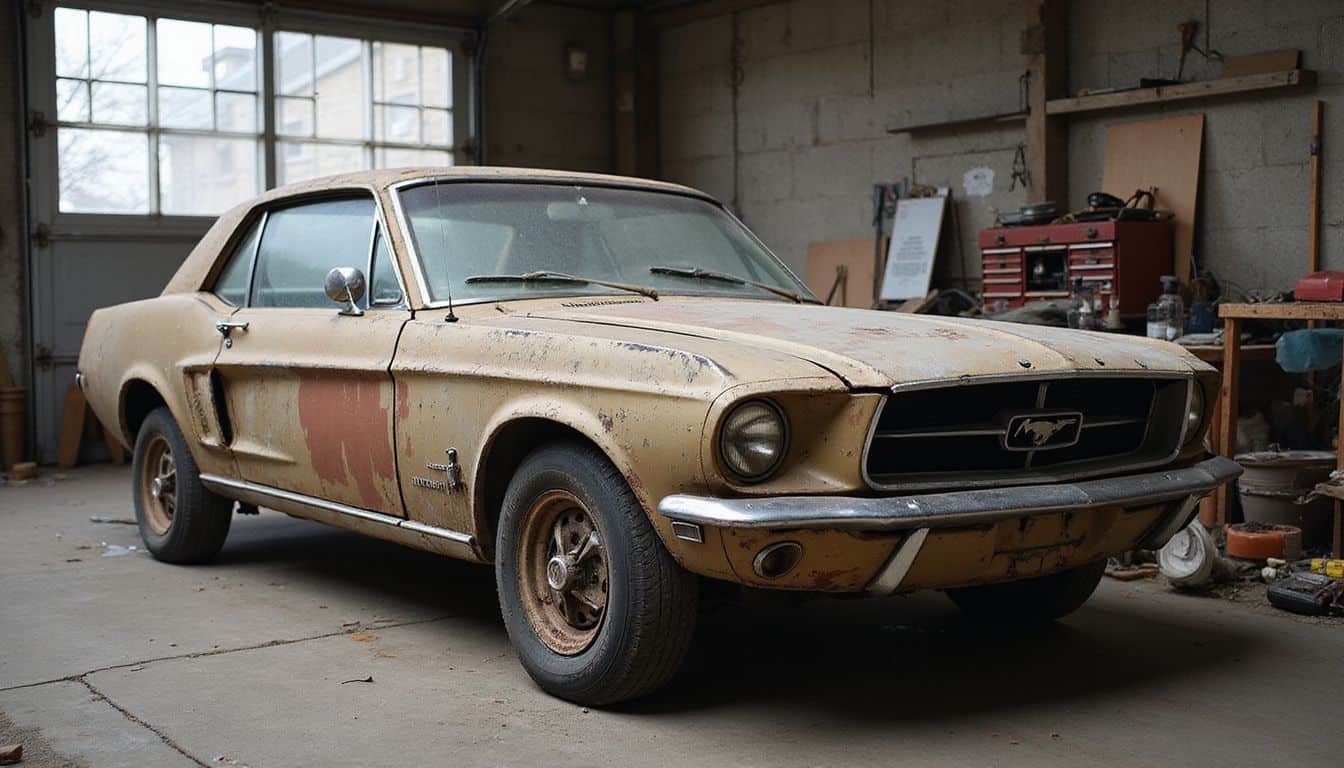Buying a used car can feel risky if you’re not sure what to check or ask ahead of time. A recent study showed almost one-third of used vehicles sold had hidden mechanical problems or previous car accidents.
Knowing the right questions to ask when buying a used car, along with these 12 smart checks, will help you avoid costly mistakes and find reliable transportation at a fair price. Read on for simple steps that protect your money and save stress.
Key Takeaways
Always verify the vehicle mileage against service records—this simple check helps uncover odometer fraud, a scam that hits around 200,000 California cars every year.
Order a vehicle history report for about $25-$40 using the VIN to detect past accidents, title problems, and ownership details before closing any deals.
Look for cars with fewer past owners—these vehicles usually get better care—while frequently sold cars often point to hidden troubles.
Go for a thorough test drive covering at least 10 miles on various roads—listen carefully, pay attention to brakes and acceleration, and keep an ear out for strange noises.
The used car market is shifting quickly; by 2025, inventory will likely increase, but higher interest rates mean your credit score will become even more crucial.
Table of Contents
Questions About the Car’s Condition
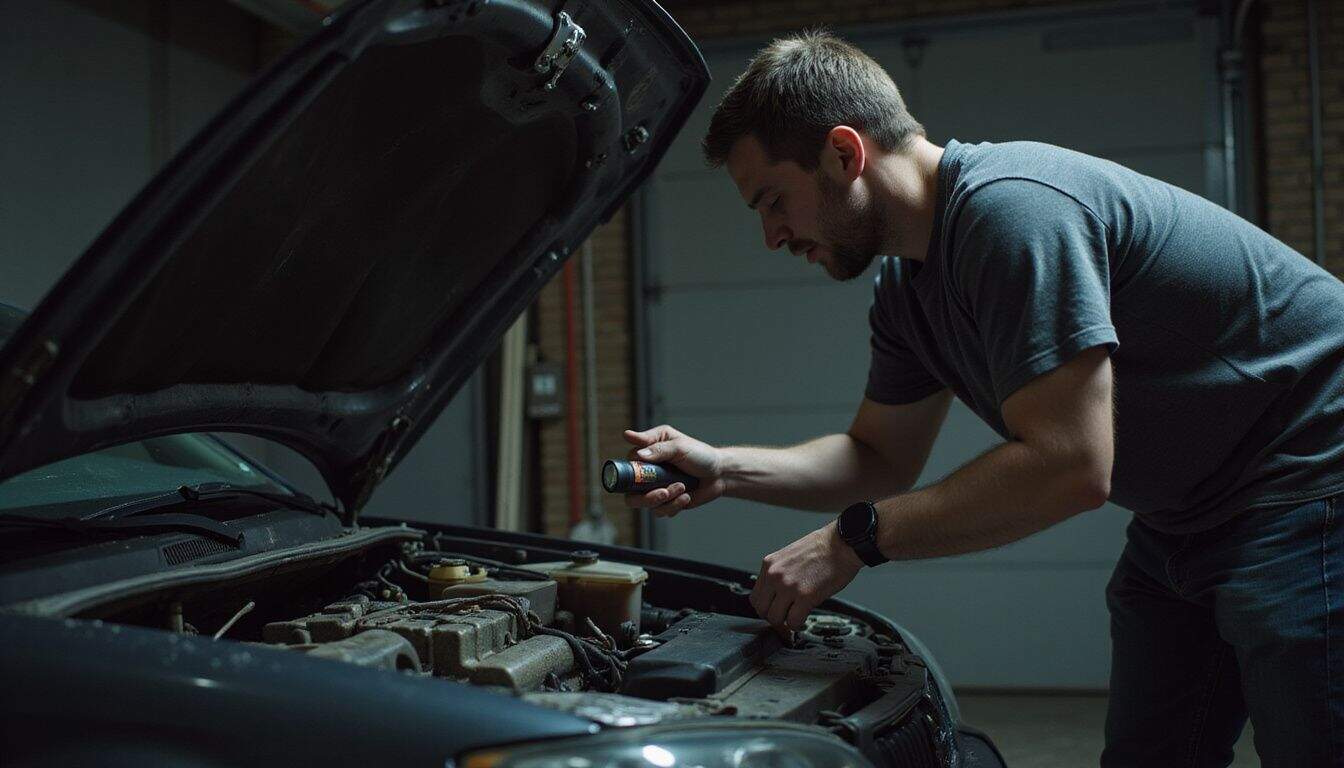
The car’s condition tells you what problems might pop up after you buy it. A few smart questions can save you from costly repairs and help you spot issues the seller might not mention.
What’s the car’s mileage?
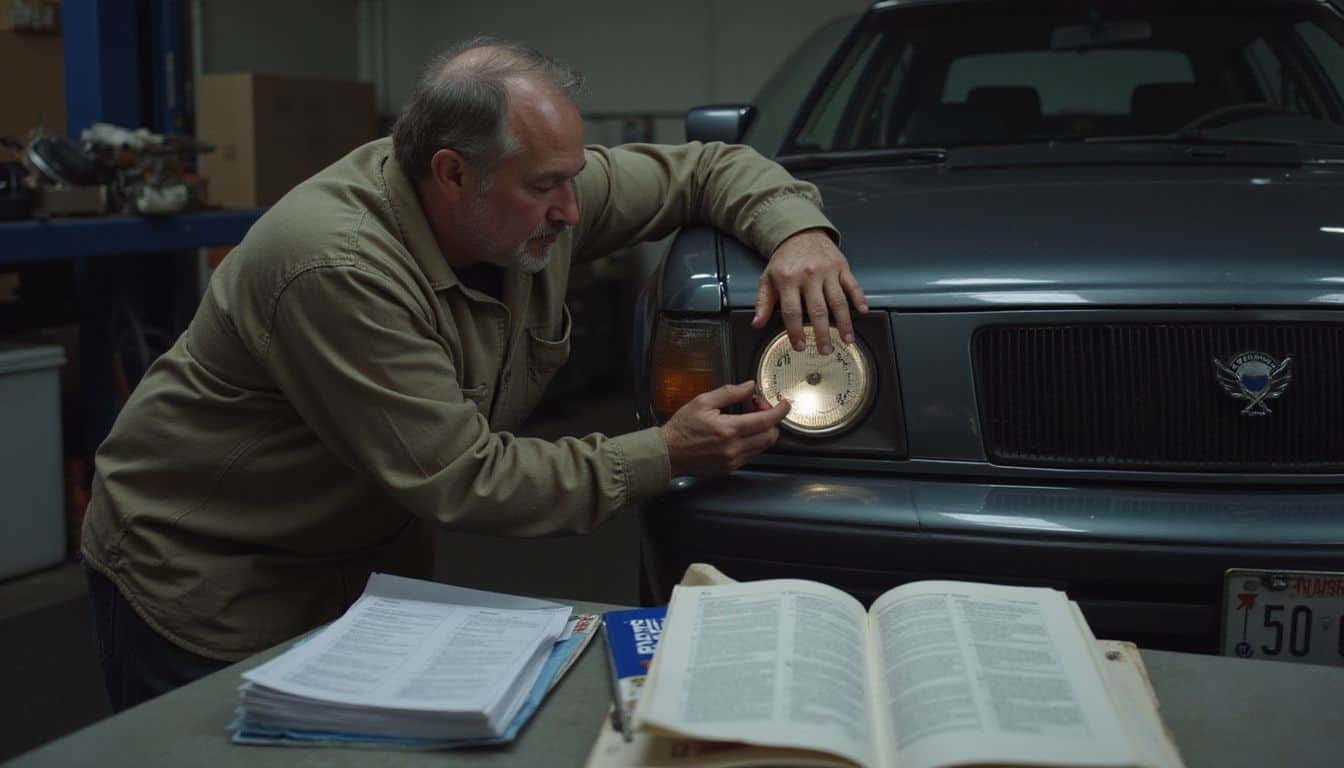
Mileage gives you a clear look into how much life a used car likely has left. Most people drive around 13,476 miles each year, so a typical five-year-old vehicle would display about 67,000 miles.
Cars showing significantly higher mileage probably saw heavier-than-average use, while unusually lower numbers might hint at odometer fraud. This matters a lot—California alone reports around 200,000 odometer fraud incidents every year.
Mileage isn’t just a number—it’s the story of how hard that car has worked.
Always request service documents and compare earlier mileage readings to what’s currently showing. Use Kelley Blue Book values to determine if the asking price matches the mileage.
Vehicles with extremely low mileage could face mechanical problems from sitting idle for too long, while cars with heavy mileage typically need repairs sooner. Your credit rating can impact loan terms, especially if you’re considering cars with unusually high or low mileage, so pulling your credit report beforehand can give you an advantage.
Are there any mechanical or exterior damages?
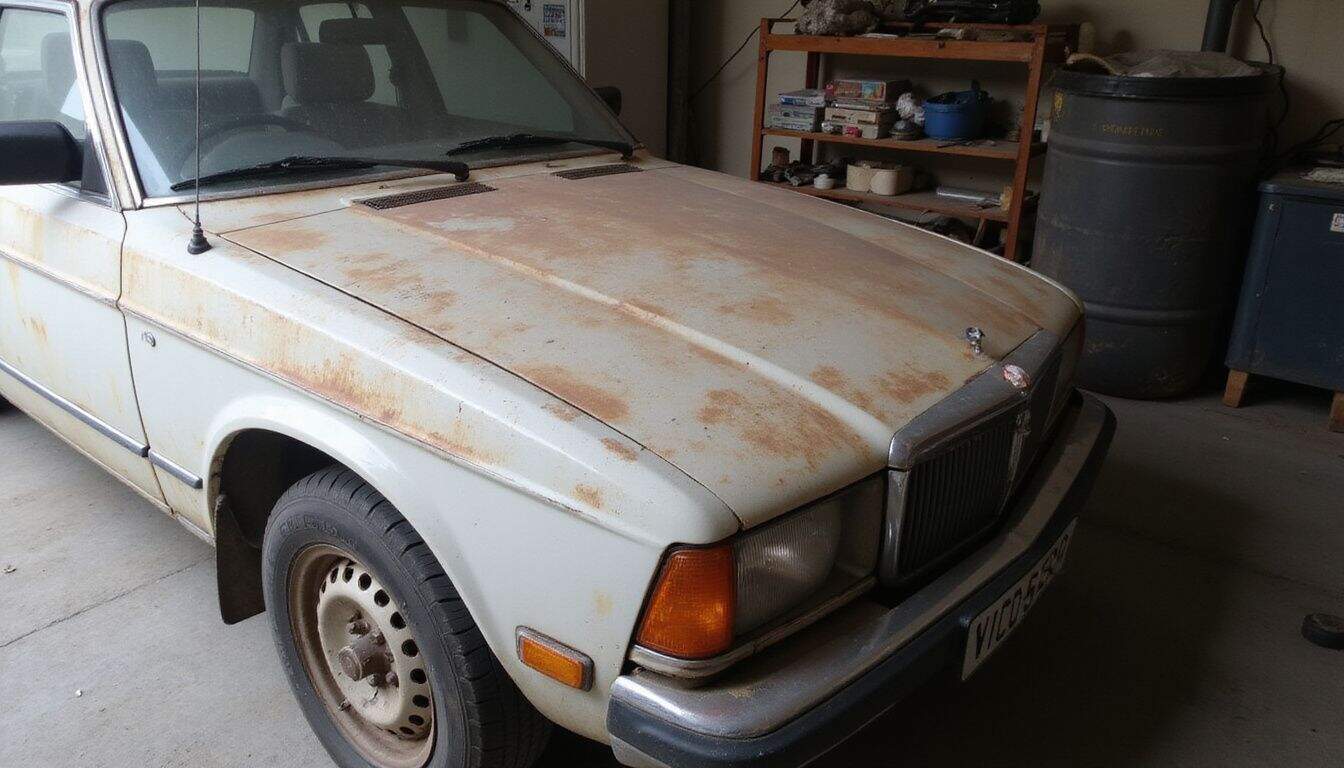
Aside from checking the odometer, inspect the car closely for damages—you don’t want expensive surprises later. Scan the body carefully for rust, dents, and scratches. Even tiny issues can turn into large repair bills over time—I learned the hard way after buying a car with minor rust that grew into a hole within six months.
Run your fingers smoothly across the body panels to detect uneven patches, which could signal past repair work. Inside, pay attention to ripped seats, broken controls, or odd smells; a damp or moldy odor might mean water got inside at some point.
Mechanical troubles often lurk under the hood, so make this a key part of your check-up. During the test drive, listen for odd engine sounds or grinding noises. Be sure all lights—including headlights, turn signals, brake lights, and interior lights—function correctly.
Always ask for the car’s maintenance records to verify regular oil changes and tune-ups. It’s worth paying between $100 and $200 to have an independent mechanic inspect the vehicle before buying.
They’re trained to notice hidden problems you might overlook—things like worn brake pads, fluid leaks, or aging seals. A vehicle history report is helpful, too, showing if the car has ever been involved in an accident that left hidden damage.
Has the car ever been in an accident?
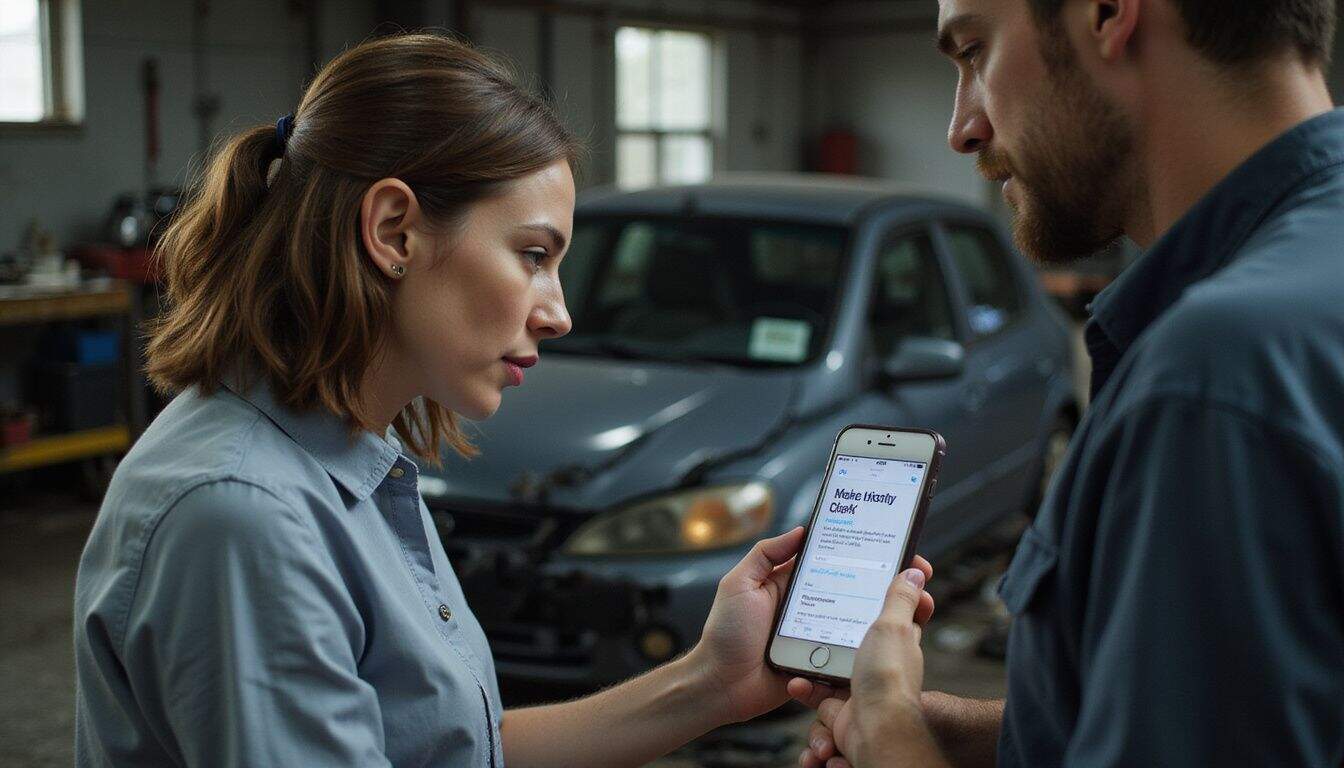
Don’t just look for dents or scratches—you need to check if the car was ever in an accident too. Past crashes can mess with how the car performs and its overall safety. The seller should openly let you know about big repairs done after collisions.
A car that’s been in an accident usually sells cheaper, and there’s a good reason for it. Even if repairs were done, serious damage can cause headaches down the road. Smart buyers make sure to find out how severe past crashes were, to avoid trouble later.
To double-check, grab a vehicle history report using the VIN from sites like CheckCar.vin. These reports clearly list details about past accidents, repairs, and more.
A little bump or scrape usually isn’t serious—but frame damage or deployed airbags could mean hidden and expensive problems. You can easily look up the car’s background in California or any other U.S. state to catch big issues like salvage titles or serious repairs.
Questions About the Car’s History
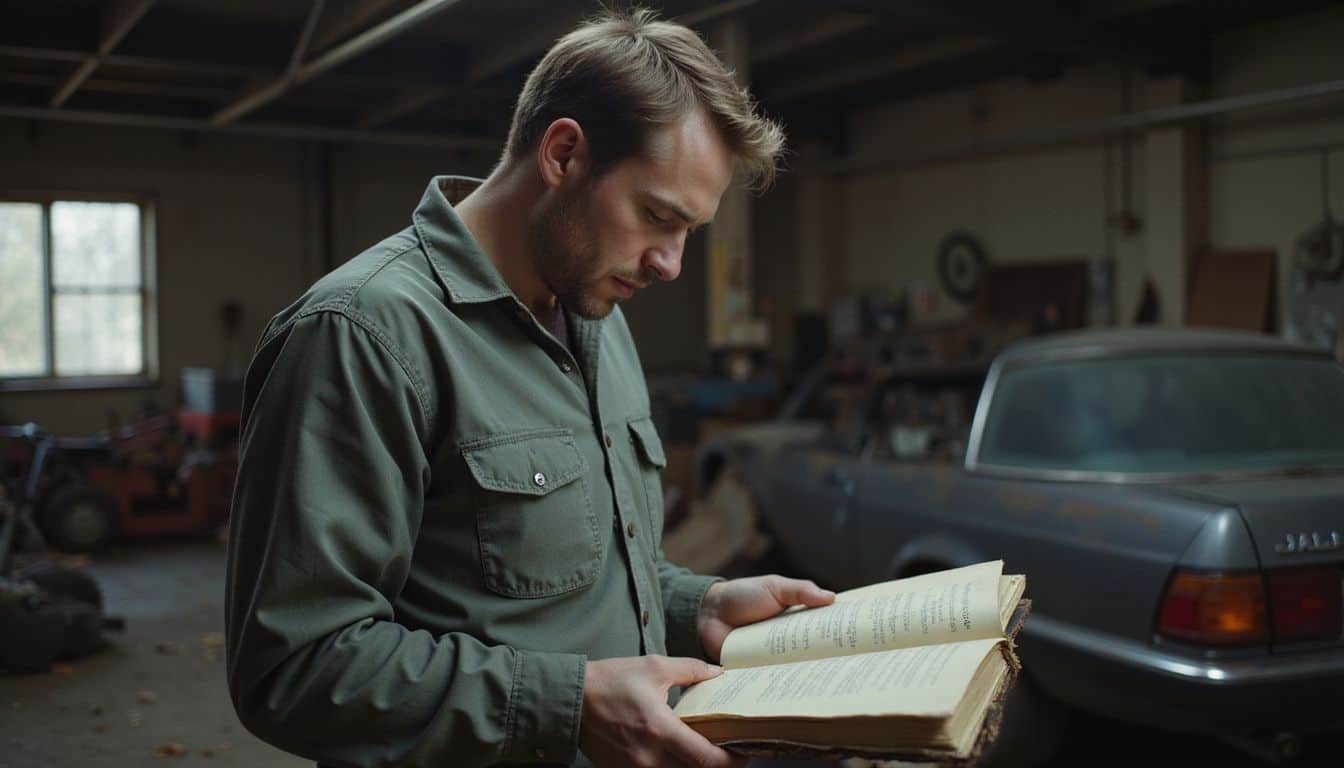
A car’s history holds clues about its future problems. Smart buyers dig into past records to avoid costly mistakes later.
Is there a vehicle history report available?

Always get a vehicle history report before buying any used car. These reports generally cost around $25 to $40—but they’re worth every penny. Years ago, I skipped the report and bought a car that had been in a serious flood; it became a costly headache later on.
You’ll need the car’s 17-digit VIN to pull up these reports from providers like CheckCar.vin.
Vehicle history reports show you key details—like previous accidents, any title issues, and ownership history. Many dealerships offer these reports for free, but private sellers often don’t.
If someone claims they don’t have one or can’t provide it easily, treat that as a warning sign. Spending a little bit upfront can save you from buying a damaged vehicle or even a car with a salvage title.
How many previous owners has the car had?
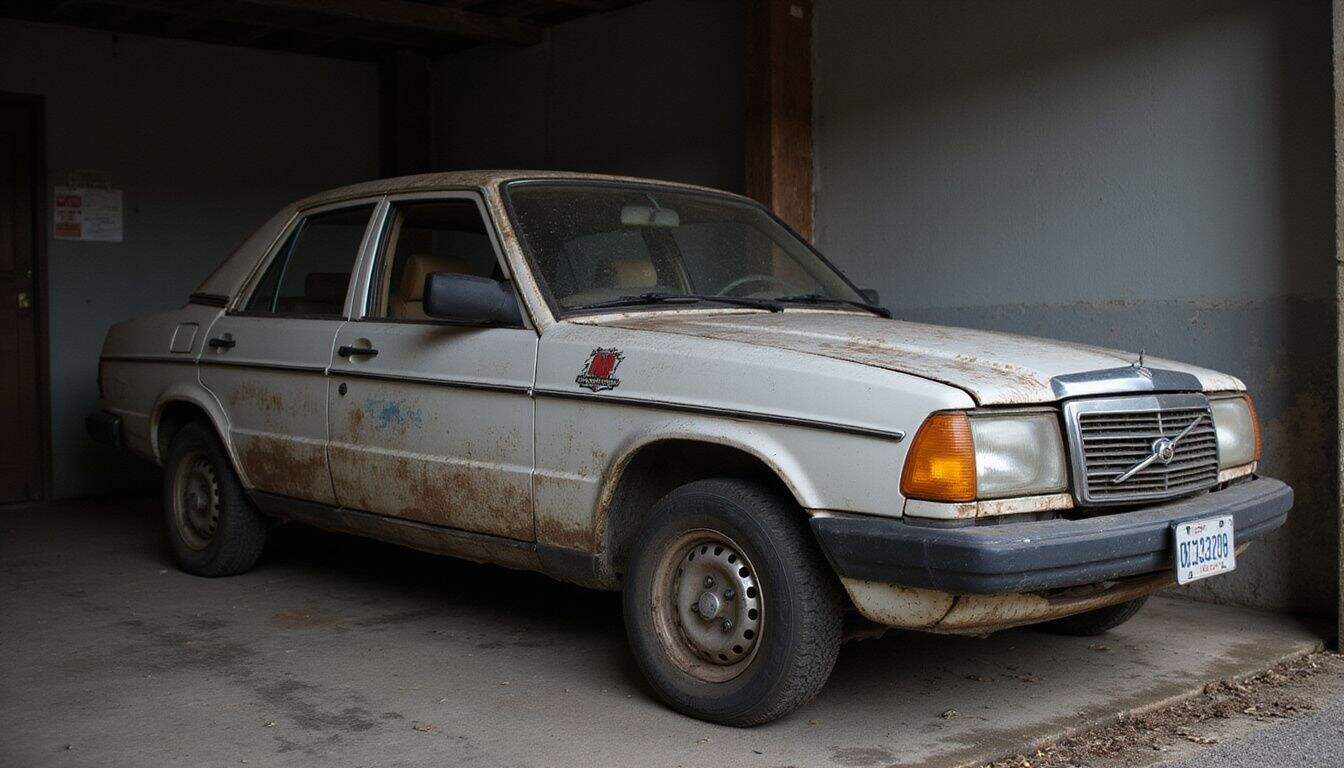
The number of previous owners can tell you plenty about a used car’s history. A vehicle history report clearly lists how many people have owned the car prior to you. Cars with numerous past owners may have underlying problems causing quick resales.
Most experts agree—fewer previous owners usually indicate better care. A history of just one or two past owners likely means people enjoyed driving the car enough to keep it longer.
But seeing five or six previous owners should set off alarm bells about potential problems.
A car’s ownership history is like its personal resume – fewer job changes usually means greater stability.
By checking ownership records, you get a sense of how carefully the car was maintained. Multiple owners passing the car around quickly might signal ongoing mechanical issues or lackluster maintenance routines.
Be sure to ask the seller for the car’s unique Vehicle Identification Number (VIN)—this lets you look up detailed ownership records yourself. Doing this simple check can spare you from ending up with a car that has hidden defects or unresolved problems—issues that could cost you higher insurance rates or expensive repairs later.
How well was the car serviced and maintained?
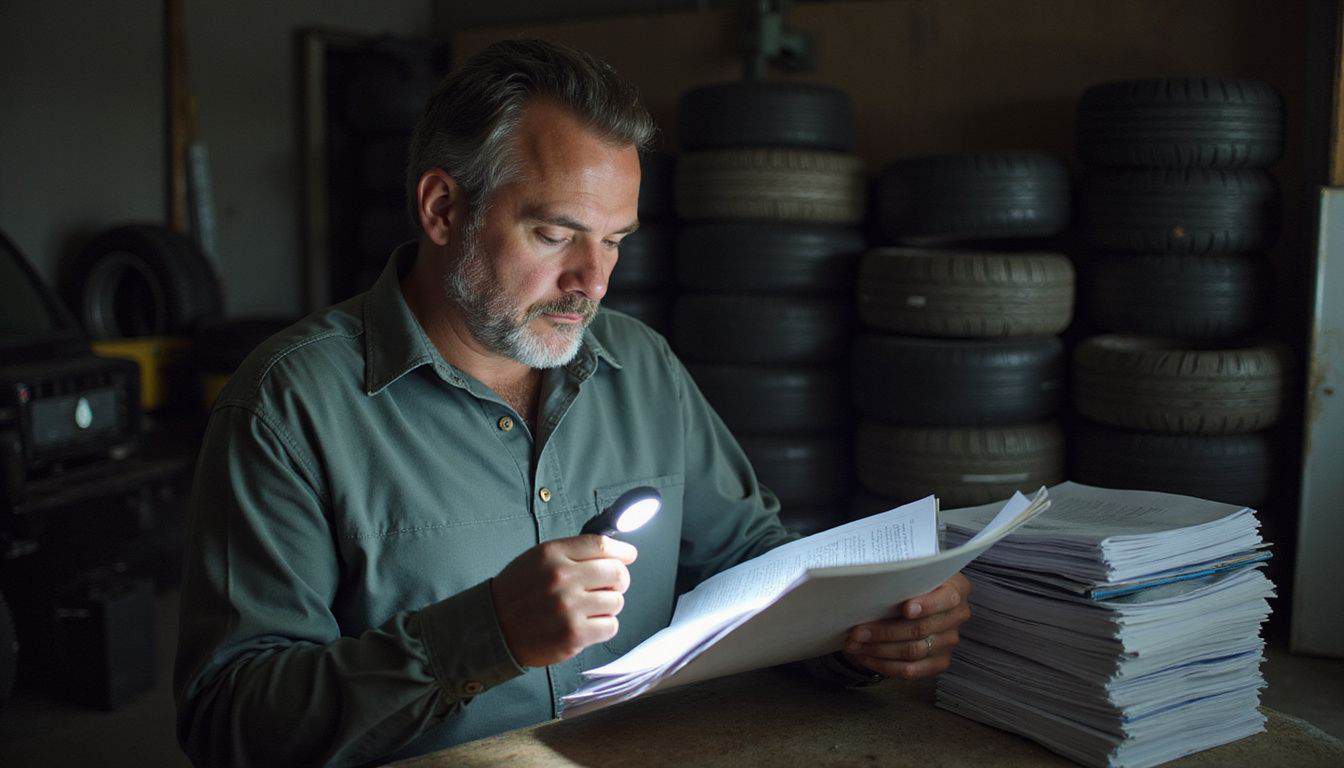
Always ask the seller for full maintenance records of the used car you’re interested in. Trustworthy sellers keep clear records of oil changes, tire rotations, and regular inspections.
These documents prove the car received proper care over the long haul.
Years ago, I bought a sedan that came with detailed maintenance logs—and it ran without issues for quite some time. Make sure you match the mileage on the service documents against the odometer reading, as mismatches often warn of potential problems.
Cars with missing maintenance logs might hide expensive repairs you’ll face in the future.
Take a good look at the tires; smooth, even wear usually means proper alignment and regular upkeep. A car maintained correctly performs better, lasts longer, and won’t drain your wallet with unexpected fixes.
Many buyers skip reviewing service documents and later deal with costly repair bills they didn’t see coming. Before signing anything, be certain the seller followed the manufacturer’s recommended service schedule—you don’t want headaches or complicated issues with lemon laws later on.
Questions About the Purchase

When buying a used car, you need to ask smart questions about the price, warranty, and test drive options to protect your money and avoid future headaches – read on to discover what savvy buyers ask before signing on the dotted line.
Is the price fair or negotiable?

Used car prices aren’t set in stone—you have room to negotiate. Before talking numbers with a dealer, I check sites like Kelley Blue Book or Edmunds. Knowing a vehicle’s real value gives me leverage, especially if I see a car priced way too high.
Right now, used car loans average around $27,167, with monthly payments close to $533, so scoring a fair deal can mean big savings.
Dealerships typically leave room to negotiate in their asking price. A car’s condition matters a lot to your bargaining success. Once, I saved $1,500 on a sedan just by noting a few minor scratches and some higher mileage.
Savvy buyers compare prices for similar cars at several dealerships to find the best offer. Bring these quotes along, as evidence supporting your offer.
Does the car come with a warranty?
Once you’ve settled on a fair price, ask about the car’s warranty details. Many pre-owned vehicles still have their original factory warranties active. Solid warranty coverage can save you thousands of dollars down the line, if parts fail or repairs pop up.
A few years ago, I bought a three-year-old sedan—it still had two years bumper-to-bumper warranty remaining. Six months after purchase, that warranty covered a $1,200 transmission repair.
If you’re looking at certified pre-owned vehicles, they almost always come with manufacturer-backed warranties. Make sure to ask exactly what parts the warranty covers, and for how long.
Some plans only cover major parts like the engine and transmission. Other warranties include nearly every part of the car. Warranty length also matters greatly—30 days of coverage doesn’t give you nearly as much value as a three-year warranty does.
The length and thoroughness of that guarantee directly boosts the car’s total value—and helps you relax about potential repair costs later.
Can I take the car for a test drive?
Besides checking the warranty, always take a used car for a test drive before buying. A good test drive reveals how the car truly handles out on the road. Ask the seller for a drive that covers at least 10 miles, including some time on the highway.
This way, you can feel how well the brakes work, how smoothly it shifts gears, and how quickly it speeds up.
Schedule your drive in daylight, so you clearly see the car’s condition. Listen closely for unusual noises or rattles. Notice if the car feels steady turning corners—and watch for any shaking when you brake.
A test drive helps you feel confident about your choice, ensuring the car matches your expectations before you pay. Some mechanical issues only show up while driving, so this step helps avoid costly surprises down the road.
Questions for Private Sellers
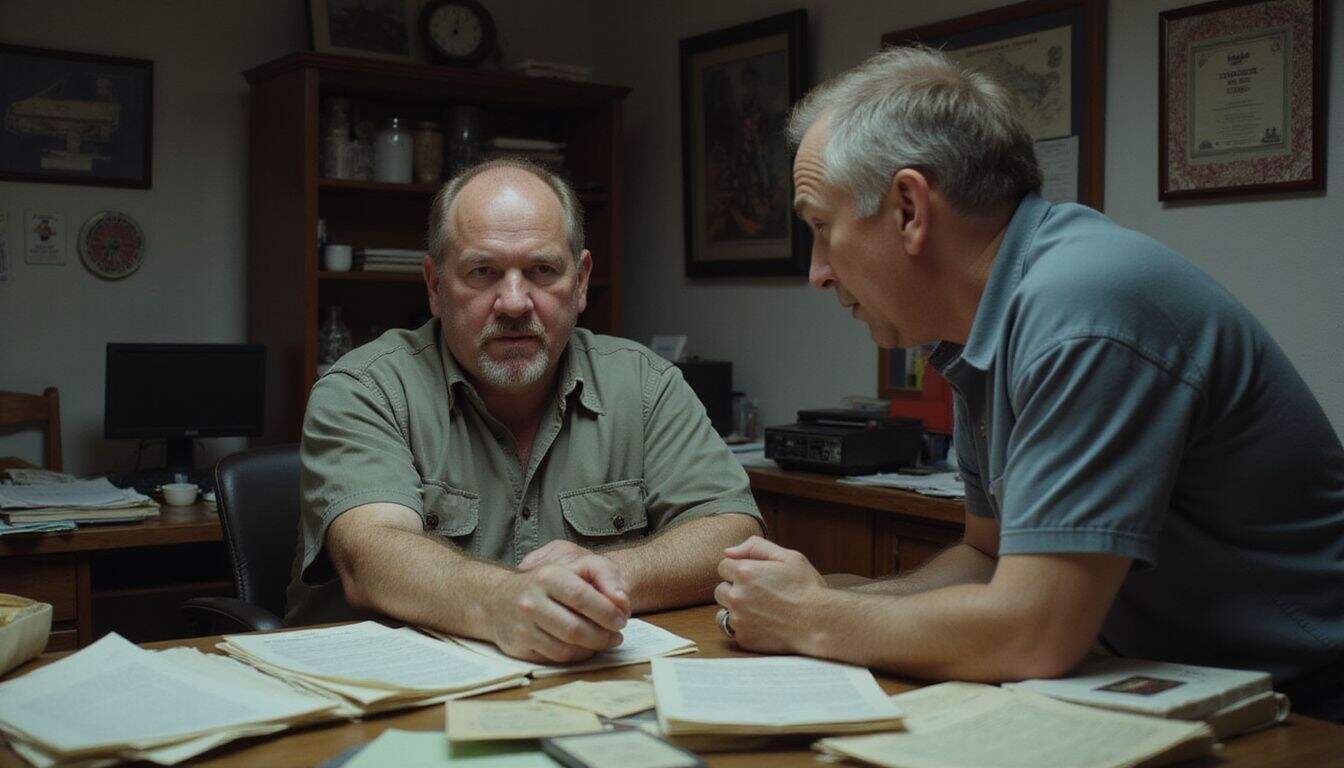
Private sellers often hide issues that dealers must disclose by law. Ask direct questions about their reasons for selling and check if they have the title ready to spot red flags early.
Why are you selling the car?
The reason sellers give for unloading a car often exposes hidden problems. Bring it up early, casually, and watch for hesitations or vague explanations. Honest answers are usually straightforward—like, “We need space for the kids”, or, “I’m relocating downtown, don’t need the car anymore”.
But red flags go up if the seller stammers, switches stories, or gives unclear reasons. One time, I bought a truck from a guy who shrugged it off as a simple upgrade—only to find serious transmission trouble after just one month.
The most revealing question you can ask isn’t about the car’s features, but why the owner no longer wants them.
Timing gives clues as well. Selling a car that’s almost brand new could signal premature trouble. See if their story aligns with the vehicle’s shape and past. If someone mentions money issues, yet neglect and poor upkeep are visible, mechanical faults might be the real reason they’re selling.
Always check the title is actually in the seller’s name, too—this helps you dodge nasty surprises like salvage paperwork or legal headaches, issues that typically drive up your insurance rates.
Do you have the title in hand?
Once you find out why the seller wants to get rid of the car, the next step is to check the title. Simply asking, “Do you have the title in hand?” might seem basic—but it can save you serious trouble down the road.
The title document officially proves who owns the vehicle. Always make sure the seller’s name matches exactly what’s shown on the title and their ID. One time, I rushed ahead and bought a car without checking the title first, and it took months of back-and-forth paperwork with the DMV to fix the mess.
A missing car title can quickly become a legal hassle you’ll regret. Vehicles with existing loans or liens need extra steps from you and the seller to ensure a smooth sale. Some sellers might promise to mail the title later—this should be a giant warning sign.
Never hand over money until you’ve physically inspected the original title. Your car loan approval, monthly insurance cost, and vehicle registration all rely on a clean transfer of ownership.
Salvage titles further complicate any purchase, lowering resale value and causing insurance coverage issues.
How Will Buying a Car Change in 2025?

Car buying will change significantly by 2025—bringing more options for shoppers. The National Independent Automobile Dealers Association predicts used vehicle sales will rise, which means extra choices for you.
And here’s some welcome news for guys looking for new wheels: vehicle stock has finally steadied. Finding the model you like won’t take endless hours of searching anymore. The digital car marketplace keeps expanding too, letting you easily research models, compare prices, and even lock in financing—all from home.
Many buyers now complete most of the car-buying steps online, before stepping onto a dealer lot.
Still, interest rates could make things tricky, particularly if your credit rating isn’t strong. High rates might drive up your total cost by thousands over the life of a used-car loan.
Smart shoppers should check credit reports first and aim for pre-approved loans through banks or credit unions. Today’s market also features more certified pre-owned vehicles carrying manufacturer’s warranties—offering extra peace of mind.
Before buying, always check the car’s history report, looking closely for problems like salvage titles or prior accidents. With smart research and good timing, you can definitely buy a used car for cheap.
People Also Ask
Why is checking the vehicle history report so important when buying a used car?
A vehicle history report tells you about previous accidents, maintenance records, and if the car has a salvage or rebuilt title. This information helps catch hidden issues—saving you from unexpected, costly repairs later.
How do I know if the price is fair for a used car?
Use resources like Kelley Blue Book or Consumer Reports to learn the car’s fair market value. Shop around at local dealerships to compare similar cars. Mileage, overall condition, and added features all influence pricing.
Should I get a used car inspected before buying?
Yes, definitely. A mechanic can detect hidden problems with the engine, brakes, suspension, and other areas, issues you might miss entirely during your test drive. Although it costs a bit upfront, this inspection can help avoid major headaches later.
What should I look for during the test drive?
Pay attention to odd sounds or unusual vibrations. Make sure everything works, including backup cameras, blind-spot detection systems, and air conditioning. Test driving on various types of roads—city streets, highways, and bumpy roads—is best, and spend at least 30 minutes behind the wheel.
How does buying a used car affect my car insurance premiums?
Insurance companies set premiums based on car type, age, and built-in safety equipment like automatic emergency braking. Certain used car models—particularly SUVs and trucks—may have higher insurance costs. Check with your insurer ahead of time for a quote on the vehicle you’re considering.
Can I get financing for a used car?
Yes, financing is available for used cars, although rates are generally higher than those offered for new vehicles. Loan terms depend on your credit score and overall credit history. Certified pre-owned cars often include special dealer financing deals, so explore those possibilities too.
References
https://www.experian.com/blogs/ask-experian/questions-to-ask-when-buying-a-used-car/ (2022-01-29)
https://www.metromotor.com/blog/30-questions-ask-when-buying-used-car
https://www.autotrader.com/car-shopping/should-you-buy-a-car-thats-been-in-an-accident
https://nopressurenohype.com/questions-to-ask-when-buying-a-used-car/
https://www.kbb.com/car-advice/vehicle-history-report/
https://www.buzzfeed.com/eviecarrick/questions-before-buying-used-car (2021-09-30)
https://www.autotrader.com/car-shopping/buying-used-car-how-many-previous-owners-too-many-247233
https://www.nerdwallet.com/article/loans/auto-loans/10-questions-to-ask-when-buying-a-used-car
https://consumer.ftc.gov/articles/buying-used-car-dealer
https://www.carfax.com/buying/test-drive-car
https://www.oregon.gov/odot/dmv/pages/form/smart_buyer.aspx
https://www.usepigeon.io/blog/loan-tips-and-tricks/questions-to-ask-when-buying-a-used-car-your-complete-checklist (2022-09-19)
https://www.bankrate.com/loans/auto-loans/how-the-car-buying-process-has-changed/
